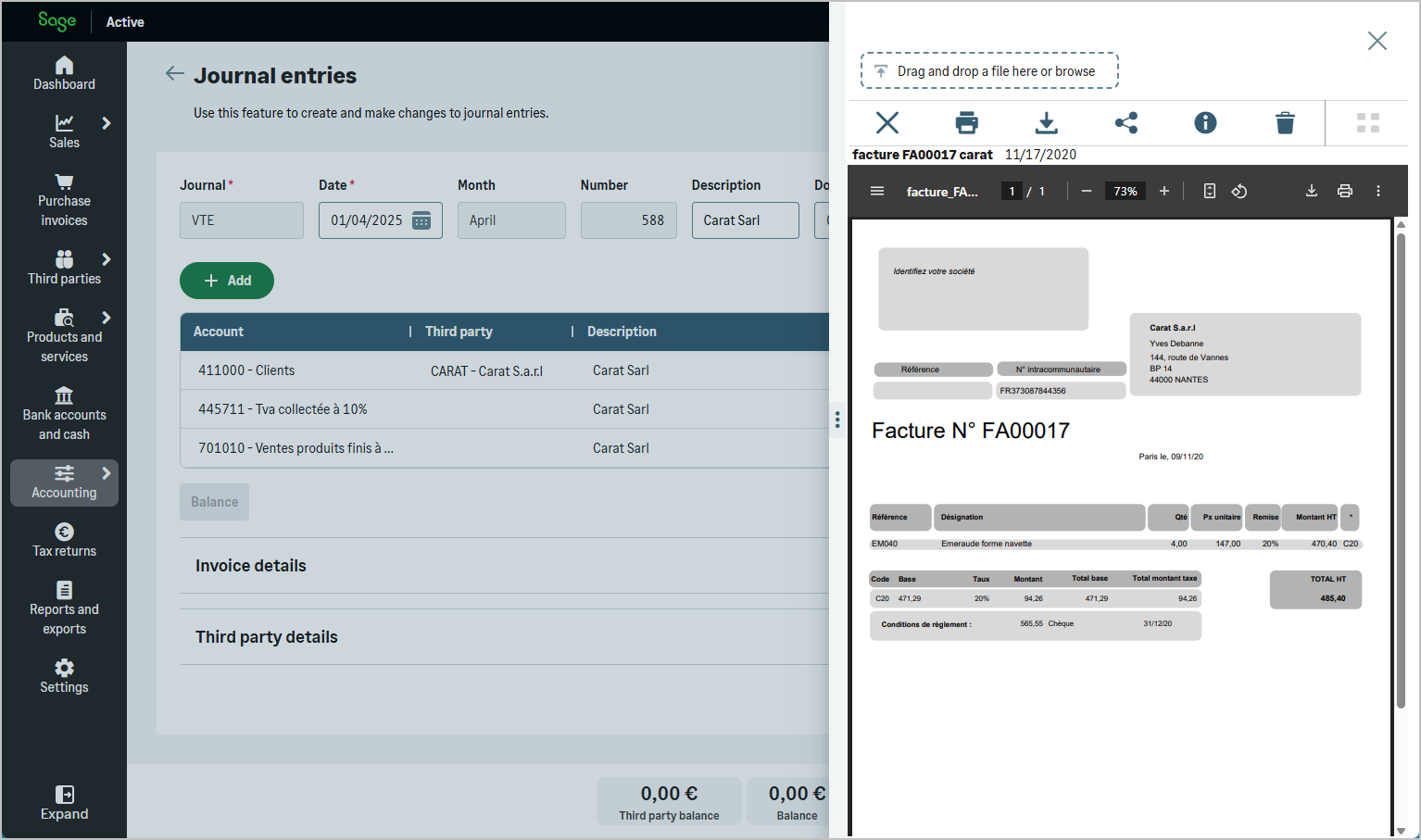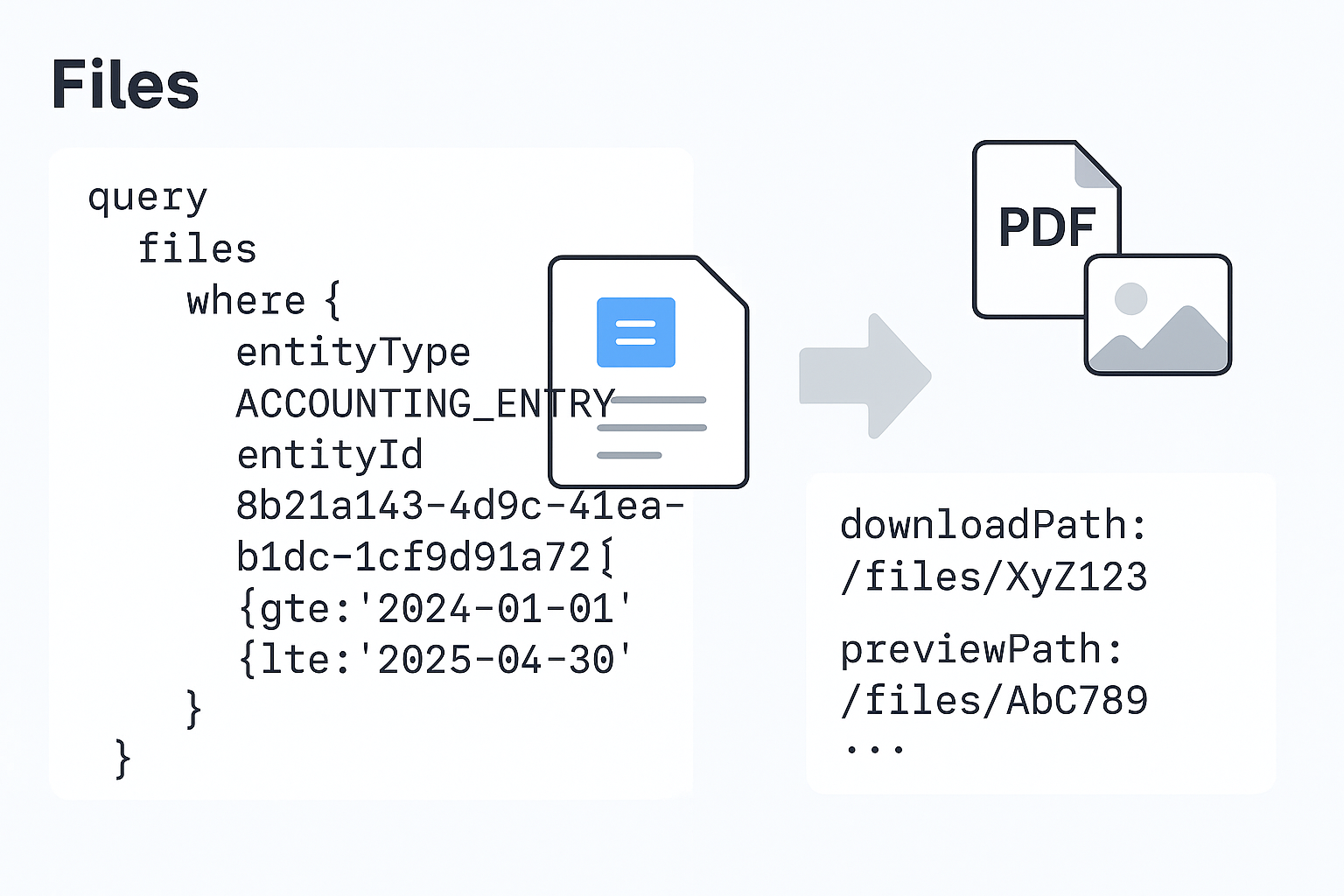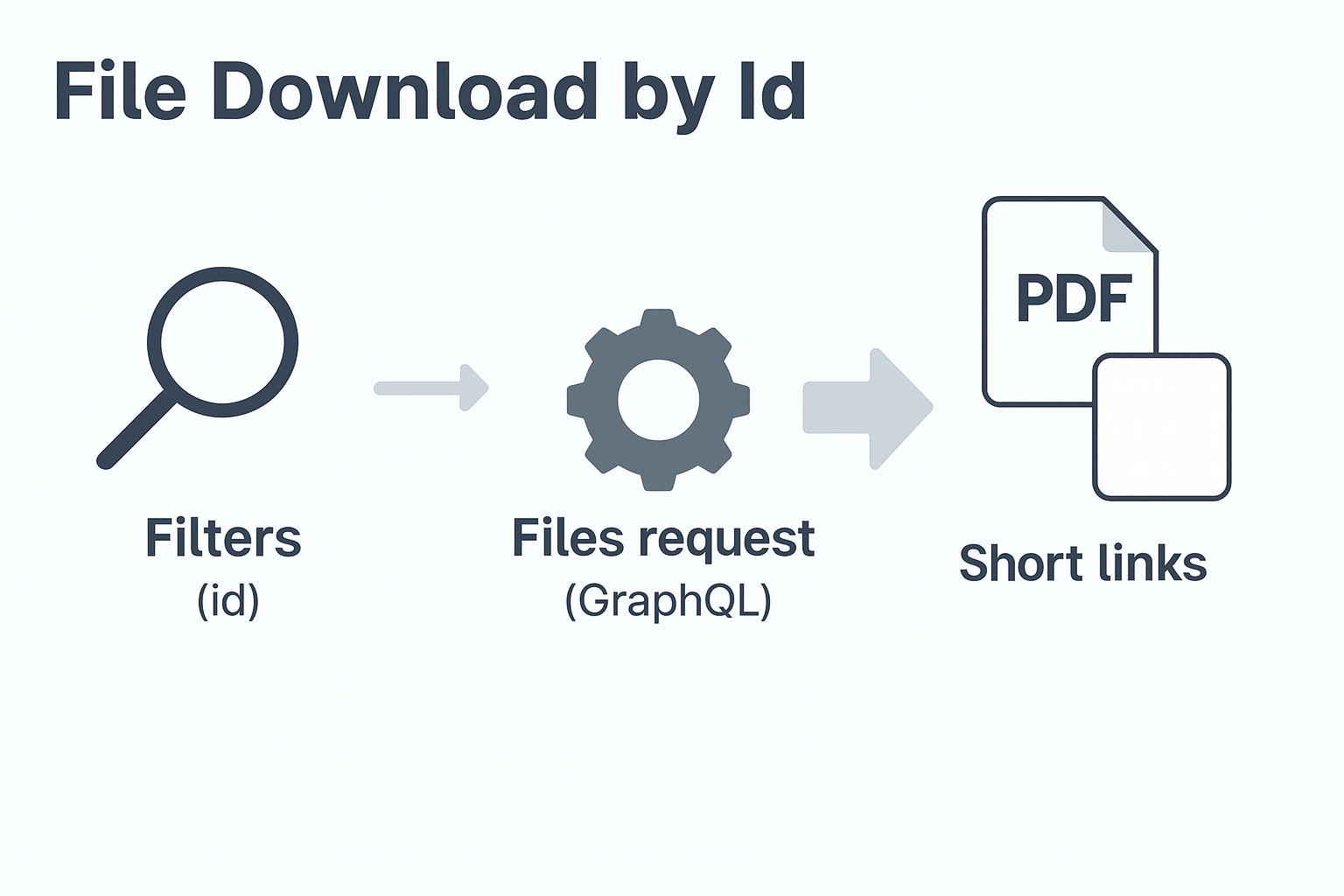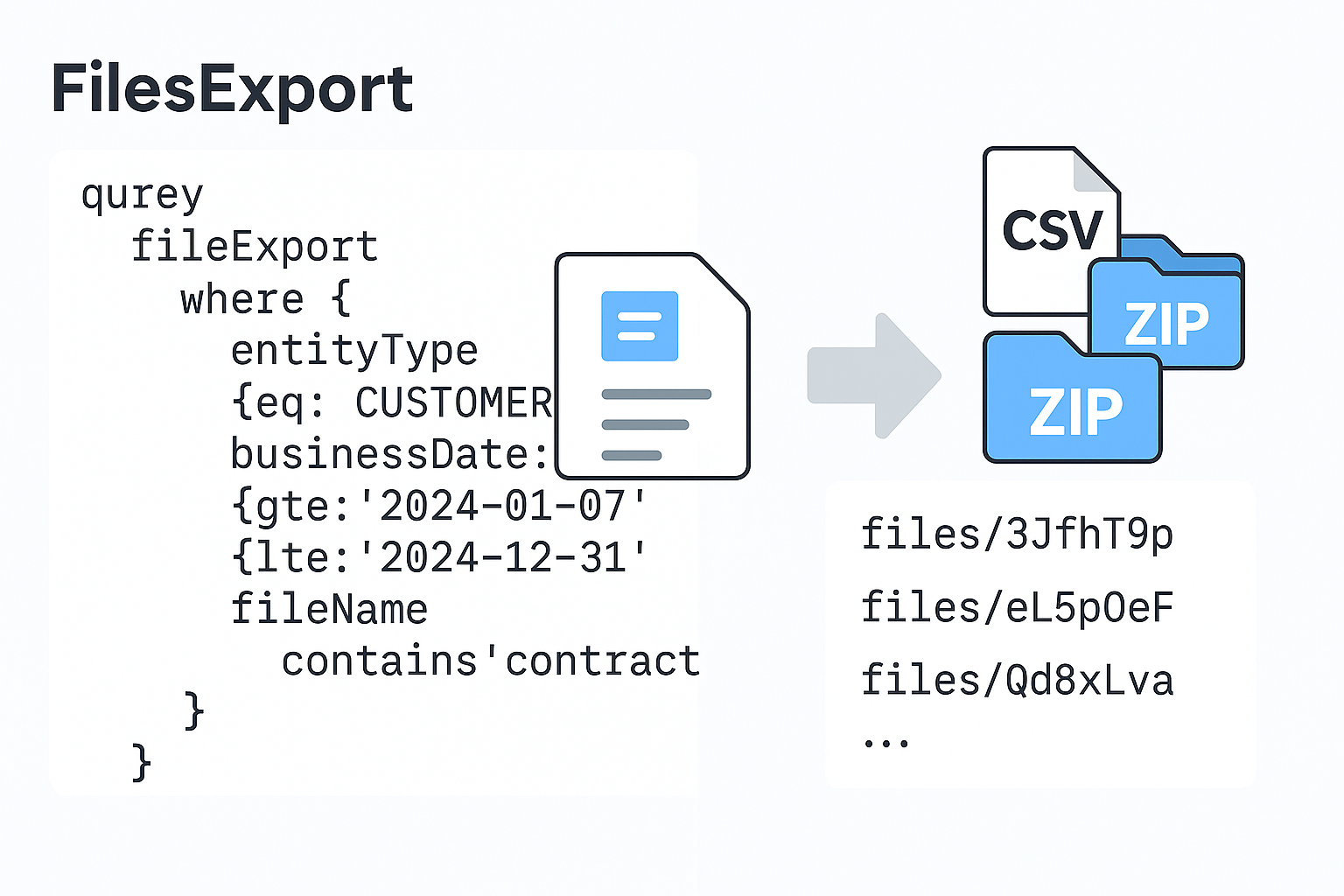The file is streamed directly through the GraphQL mutation using the Upload scalar type, following the GraphQL multipart request specification.
File Management
Quick Links
Accounts Accounting Entries Products Customers Sales quotes Sales invoices Suppliers Purchase invoicesThis feature is currently under development and, although not available in the current version, its preliminary documentation is provided to give you a preview of the enhancements that will be included in an upcoming update.
Description
The File Management section provides the core functionalities to upload, retrieve, and manage files associated with business entities such as customers, suppliers, or accounting entries.
These files can be documents like invoices, receipts, or supporting attachments linked to operational records.
The API supports uploading files directly through GraphQL using the Upload scalar and retrieving them with powerful filtering capabilities using the files query.
For your security, all uploaded files undergo antivirus scanning and are encrypted before being stored, ensuring both safety and confidentiality.
Resources
File Upload
API resources overview / Upload File To Entity

File Listing and Filtering
API resources overview / List of Files
For each file, details such as
fileName, mimeType, uploadDate, size, and related entity information are provided.It supports advanced filtering, sorting, and pagination on fields such as
entityType, entityId, businessDate, and fileName.
This query is useful for multiple scenarios:
- Retrieving all document records linked to business entities (e.g., all invoices attached to an accounting entry)
- Retrieving information about a specific file by its
id(to check metadata or availability) - Checking whether an uploaded file has been fully processed and is safe to use (via
idfilter, useful right after an upload) - Listing files generated by an filesExport request
As each uploaded file undergoes an antivirus scan, the query response normally includes only processed and safe files.
- Files that are still being processed (pending upload submission or antivirus scan results) or that have been rejected as infected are excluded from the response.
- Exception: when filtering explicitly by
id, the query may also return files that are still being processed, allowing you to check the status of a recently uploaded file.
If explicitly requested, each file entry can include short-lived access paths:
downloadPath: a temporary relative path to download the file.previewPath: a temporary relative path to preview the file content in a browser.
These short paths are valid only for a limited time and should be used promptly after retrieval.


File Download by Id
API resources overview / File Download By Id
It focuses on scenarios where you already know the file ID (for example, obtained from a previous
files query) and you need to retrieve short-lived link paths (downloadPath and previewPath) to access the file.
This pattern is typically used when:
- You first list files with metadata only (without requesting link paths).
- Later, when a user selects a file to open, you run a new
filesquery filtered by its ID to get a fresh valid link.
The returned link paths are temporary and must be consumed quickly:
- downloadPath always forces download of the file (due to the
Content-Disposition: attachmentheader). - previewPath displays the file inline when possible, with optional HTML previews for
.csv,.xml, and.txt.

Files Export
API resources overview / Files Export
It triggers the creation of one or more ZIP files (each limited to 65MB) and an accompanying
index.csv file describing the contents.
The response itself does not return the download links.
Instead, it provides the status of the export request (ACCEPTED or NO_MATCH).
Once the request is accepted and processing is complete, the generated artifacts can be retrieved using the files query with the filter filesExport: { eq: true }.
This query will return short-lived download links (downloadPath) for the index.csv and the exported ZIP packages.
This mechanism is ideal for exporting documents by customer, supplier, accounting entry, or for compliance and audit purposes.
All filtering options and restrictions are identical to those supported by the files query.
